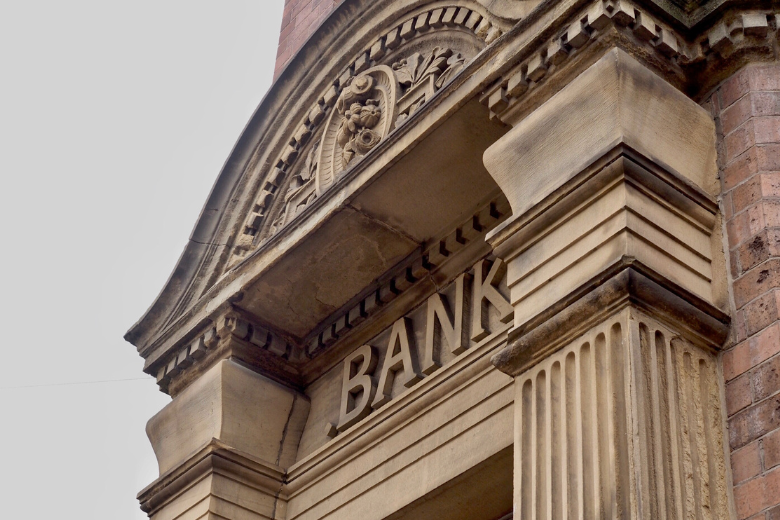Although I am a self improvement/personal finance blogger by profession, I am in no way a mental health or finance professional. See my disclaimer for more info.
Are you thinking about opening some new bank accounts, but don’t know how many you should have? This post should help you answer the question, ‘How many bank accounts should I have?’

If you’ve been working toward financial freedom, you’ve probably been opening different kinds of bank accounts to diversify your money. But, you may wonder how many bank accounts is enough.
When I started learning about finance, I had the same question as you. At the time, I barely even had my own checking account. I was using my mom’s debit card each time I wanted to buy something. But now, after researching and learning more about personal finance, I’ve opened many bank accounts that all serve a specific purpose.
The last part of that previous sentence is crucial! Keep reading to learn all about the different kinds of bank accounts you should have if you want to reach financial success.
This post is all about the 5 bank accounts you need for financial success.
Pros and cons of having multiple bank accounts:
First, you might be thinking, “Why in the world would I have 5 bank accounts?” That’s definitely a lot of money to manage, so let me tell you why you should think about it.
Here are some pros of having so many accounts:
- Backup — if one bank falls, you have others to rely on.
- Organization — by having 5 bank accounts, you have lots of organization. You have so many ways to organize your money! Every account should have its own purpose.
- Try different features — different banks and credit unions offer different features, so if you’ll be able to enjoy these features.
Alright, those are the benefits of having 5 bank accounts. I do want you to know that there are a few reasons that you might not want to have so many accounts:
- Too many accounts — I agree that 5 accounts can seem like a lot. That’s a lot of log-in information, card details, and other important information to remember.
- It might be hard to meet balance requirements — if you didn’t know, you usually have to meet something called a ‘minimum balance requirement’ if you don’t want to pay your monthly maintenance fee for your checking or savings account. These requirements can get a bit hefty depending on the bank. Make sure you do your research before opening an account!
Here are the 5 bank accounts you should have:
1. Your main checking account

No matter how many bank accounts you have, you need a checking account.
This is the account that most likely you get your paycheck sent to, buy groceries with, and use to get money from the ATM. In other words, this is your main bank account that you use for your normal cash flow.
You shouldn’t get just any checking account, though. When looking for a primary checking account, you need to keep in mind that different banks offer different features. Think about:
- Minimum balance requirements — the amount of money you need to keep in your account to avoid paying a monthly fee
- Features — things like a mobile app
- Customer support — does the bank offer 24/7 customer service? Is this by phone, online chat, and/or email?
- History — what kinds of “scandals” and legal issues have the bank been involved in recently?
- Type of bank — is this only an online bank, or can you go in and take care of your banking duties in a physical branch?
- Card network — is the debit card issued by Discover, Visa, American Express, or Mastercard? (Visa is accepted by most merchants)
These are just a few things to think about when you’re in the lookout for a new bank account.
FREE BUDGET TRACKER
Get on top of your finances with this monthly budget tracker.
Track all of your monthly expenses, plan your budgets, and more!
Click the button below to get it now!
2. A checking account for bills
Alright, you know that you need a primary checking account where all your money starts. But, if you want to organize your money as best as possible, you might want to open another account. I recommend opening a separate checking account for bills.
Use this account to pay for:
- Utility bills
- Credit cards
- Unexpected expenses
Doing this will allow you to keep everything nice and organized.
I like to have accounts with different banks to try different features and overall organize my finances the best that I can. It definitely isn’t easy managing 5 checking accounts (yes, five), but I really do like having a specific account for every purpose.
3. An emergency fund

This might sound scary, but it’s not. An emergency fund is an account that you use for unplanned events, like:
- A flat tire
- An expensive medical bill
- A job loss
You need to remember that you shouldn’t just go to your emergency fund any time you want. If that’s the case, there would be no point in calling it an emergency fund! It should only be used for emergencies.
You should keep 3-6 month’s worth of living expenses in this account. This means that you should sit down and calculate how much money you’re spending on basic living essentials, like:
- Rent
- Groceries
- Transportation
- Clothes
These are some of the best savings accounts for an emergency fund:
- Ally — 4.35% APY (has a savings bucket feature so you can organize your savings)
- Capital One 360 Performance Savings — 4.35% APY
- Discover Online Savings Account — 4.30% APY
If you want to learn more about emergency funds, check out this post: 9 Life-Changing Tips on How to Be Financially Free
4. A sinking fund
I know you’re probably saying, “What the heck is a sinking fund?” Don’t worry; I was in that same boat. A sinking fund is kind of like your regular savings account, but has one specific difference.
Instead of things that you can’t predict, you use a sinking fund for things that you can predict. In other words, you use a sinking fund for planned expenses, like:
- A new car
- A vacation
- A down payment on a new house
- College
- A new laptop
5. An individual retirement account

This is probably the most important bank account we’re going to talk about. I know this topic can be a bit confusing, so I want to make it as simple as possible to understand. (My high school personal finance teacher definitely did a good job with that!)
Basically, an individual retirement account (IRA) allows you to save money for retirement, and not be taxed highly on that money.
There are 2 main types of IRAs.
The one that you choose will greatly depend on your financial situation.
- Traditional IRA: the money you put in this account is taxed before you put it in (AKA pre-taxed dollars)
- Roth IRA: the money you put in this account is taxed after you put it in (AKA post-taxed dollars)
So, which one is better?
Try to guess what tax bracket you will be in when you retire. This will obviously be based on your income.
If you think you’ll be in a higher tax bracket, you might want to go with a traditional IRA so you can be taxed later.
If you think you’ll be in a lower tax bracket, it’s probably better to go with a Roth IRA so you can be taxed before you put the money in the account.
There’s even more to learn about retirement accounts, so here’s an article to help if you want to learn more.
FREE SELF CARE ACTIVITIES LIST
Would you like a free self care activities list?
I know it can be difficult to think of different self care ideas, so I did the work for you!
I created a FREE list of 81 self care activities that you can enjoy.

Let’s Recap
We made it to the end of the post!
Today, we talked all about the 5 core bank accounts you should have:
- A primary checking account, where all your money will flow in and out of
- A secondary checking account that you’ll use to pay bills (utility bills, credit cards, etc.)
- An emergency fund to use in case of an unplanned expense
- A sinking fund for planned expenses
- An individual retirement account (IRA) to save for retirement
Remember that there’s no right or wrong answer for everyone. The accounts that you open will depend on your lifestyle and financial habits. But, this post should help you decide how many accounts based on these factors.
Please remember to take time to take care of yourself!
Check out this post for some enjoyable, free self care activities: 7 Fulfilling Free Self Care Activities for Mental Health
In the midst of chaos, don’t forget to smile,
DeMarcus – your self care buddy
Pin it for later!

This post was all about the 5 bank accounts for you need for financial success.




Leave a Reply